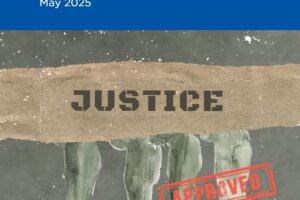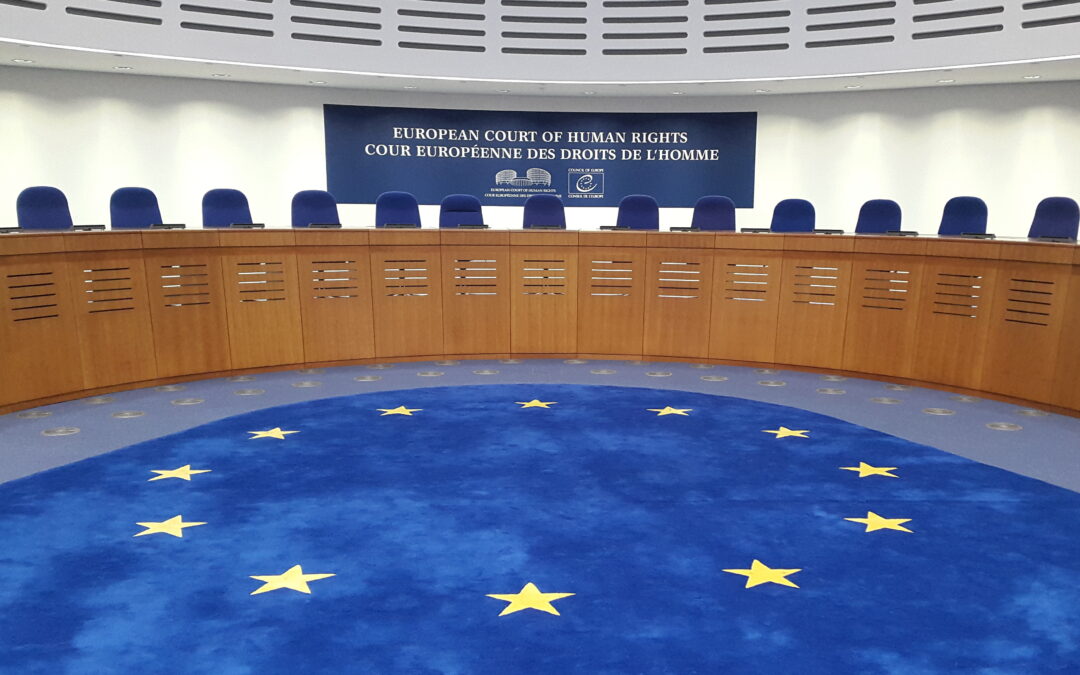
Oct 27, 2020 | Advocacy, Cases, Legal submissions
The ICJ and Amnesty International have presented today a third party intervention before the European Court of Human Rights in the case of the premature dismissal of Judge Waldemar Zurek from his position in the National Judicial Council.
In the case Zurek v. Poland, the ICJ and Amnesty International presented submissions on the scope of application of the right to a fair trial under Article 6.1 of the European Convention on Human Rights (ECHR) in cases relating to the role of an independent judiciary and its members through self-governance mechanisms (such as the National Council of the Judiciary) in light of international standards on judicial councils, judicial appointments, the judicial career and security of tenure; of the Court’s Convention jurisprudence; and of general principles on the rule of law and the role and independence of the judiciary.
They further submitted obervations on the scope of the right to freedom of expression under Article 10 ECHR as applied to judges, including those engaged in the administration of the judiciary.
ECtHR-AmicusBrief-Zurek_v_Poland-Advocacy-Legal-Submission-2020-ENG (download the third party intervention)
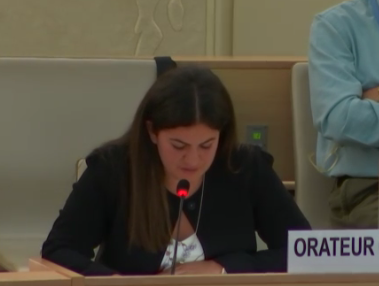
Jun 29, 2018 | Advocacy, Non-legal submissions
The ICJ today raised concerns for the independence of the judiciary in Serbia, in a statement to the United Nations.
The statement was delivered during the discussion of the outcome of the Universal Periodic Review (UPR) of Serbia, at the UN Human Rights Council in Geneva.
It read as follows:
“The International Commission of Jurists (ICJ) congratulates Serbia on the completion of its Third Cycle Universal Periodic Review.
The ICJ welcomes the acceptance by Serbia of all recommendations to strengthen the rule of law and judicial independence, including by limiting political influence over judicial appointments (Norway, 6.1; Sweden, 6.2; France, 6.3; Australia, 6.20; Germany, 6.22; Morocco, 6.23; Estonia, 6.24; Republic of Korea, 6.25; Singapore, 6.26; Canada, 6.27).
The ICJ regrets, however, that constitutional amendments currently under discussion in Serbia run counter to these recommendations.
The amendments would empower the National Assembly to determine appointments and dismissals of judges of the Constitutional Court, as well as for half of the members of the High Judicial Council, five members of the High Prosecutorial Council, the Supreme Public Prosecutor and public prosecutors.
The independence and autonomy of the Constitutional Court, High Judicial Council and State Prosecutorial Council, would be better secured by reducing or eliminating the role of political bodies such as the National Assembly, particularly as regards dismissals.
The ICJ stresses that the judiciary and the prosecution service must exercise their functions free from direct or indirect external influences, threats or interferences, including from the legislative and executive powers.
While welcoming reforms for life tenure of judges and deputy prosecutors, the ICJ urges Serbia to implement the accepted recommendations by precluding involvement of the National Assembly in the appointment and dismissal of judges, court presidents, public prosecutors, and deputy public prosecutors.”
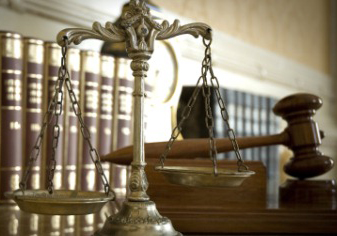
Jun 25, 2018 | Advocacy, Non-legal submissions
The ICJ today spoke at the UN on the role of judicial councils, judicial independence in Turkey and Poland, and on business and human rights in Peru.
The statement was made at the UN Human Rights Council during the interactive dialogue with the Special Rapporteur on Independence of Judges and Lawyers and the Working Group on Business and Human Rights.
The statement on judicial councils and independence was made jointly with the Commonwealth Magistrates’ and Judges’ Association. The whole statement read as follows:
“Mr President,
The International Commission of Jurists (ICJ) and Commonwealth Magistrates’ and Judges’ Association (CMJA) welcome the report of the Special Rapporteur on the Independence of Judges and Lawyers (A/HRC/38/38) on the role of judicial councils and similar bodies.
Based on many decades of relevant experience around the world, we urge that:
All countries should consider establishing an independent judicial council. Reliance on constitutional customs, cultures, and traditions alone often proves insufficient if a crisis arises.
To guarantee independence, a majority of members should be judges elected by their peers. Any other members must also be independent. The Head of State, executive or legislative officials, or political candidates, should not be members. Proactive measures should address under-representation of women or persons from minority or marginalized groups.
Such bodies should be responsible for all decisions relating to the selection, appointment, promotion, transfer, discipline, suspension and removal of judges.
As an example of concern, in Turkey following constitutional reform in 2017 no member of the Council of Judges and Prosecutors is elected by their peers, contributing to a lack of institutional independence of the judiciary. We also share the concerns for lawyers in Turkey already expressed by The Law Society and other colleagues today.
On the report on the visit to Poland (A/HRC/38/38/Add.1), we concur that reforms in the name of efficiency and accountability have undermined the independence of the Constitutional Tribunal, the Supreme Court and the National Council of the Judiciary, and effectively placed the entire judiciary under “control of the executive and legislative branches” (para 74). Mr Special Rapporteur, how can other States assist in securing full implementation of your recommendations on Poland?
The findings of the Working Group on Business and Human Rights report on its mission to Peru (A/HRC/38/48/Add.2) are of great concern, that “large number of human rights defenders and local leaders” were reportedly killed, attacked or threatened for defending the environment and land rights, legitimate social protest is criminalized, and wide use of states of exception and the armed forces have lead to serious abuses. The ICJ urges Peru to implement the recommendations and asks the Working Group what it will do to follow up?
Thank you.”
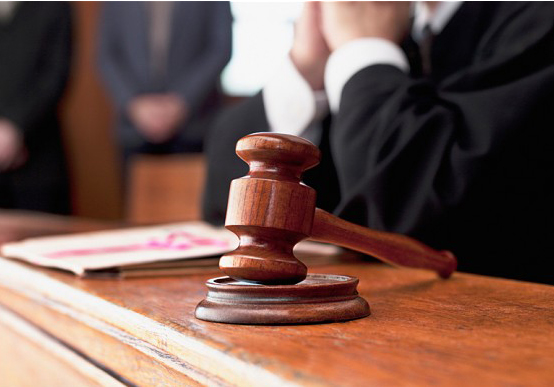
Feb 14, 2018 | Advocacy, Non-legal submissions
The ICJ has set out key principles and sources on judicial councils and other national mechanisms for selecting, appointing, promoting, transferring, suspending or removing judges, in a submission to the UN Special Rapporteur on the independence of judges and lawyers.The submission was made in response to a call by the Special Rapporteur for input to a report he will present at the June 2018 session of the Human Rights Council.
The ICJ submission highlights that judicial councils are a proven means of safeguarding judicial independence and ensuring judicial accountability. It recommends that, even in countries where judicial independence and accountability have traditionally been secured by other means, consideration should be given to the establishment of a judicial council.
The submission stresses that judicial councils must be fully independent of the executive and legislative branches of government, and notes several key safeguards to help secure such independence.
The ICJ recommends that such judicial councils should in principle be responsible for all decisions relating to the selection, appointment, promotion, transfer, discipline, suspension and removal of judges.
The submission also highlights the need for diversity of membership of such councils to ensure its representativeness of the society the judiciary is to serve, that it reflects a cross-section of the judiciary as a whole, and that it has the experience and expertise needed to be effective.
The full submission can be downloaded in PDF format here: Global-UN-SRIJL-JudicialCouncils-2018
Most of the sources cited in the submission are available here.
Related and more detailed guidance is available in the ICJ’s 2016 Practitioners’ Guide no. 13 on Judicial Accountability, as well as the 2007 Practitioners’ Guide no. 1 on Independence and Accountability of Judges, Lawyers and Prosecutors.
More information about the Special Rapporteur is available here.
For more information about the ICJ and judicial councils and similar mechanisms, contact Matt Pollard (matt.pollard(at)icj.org)
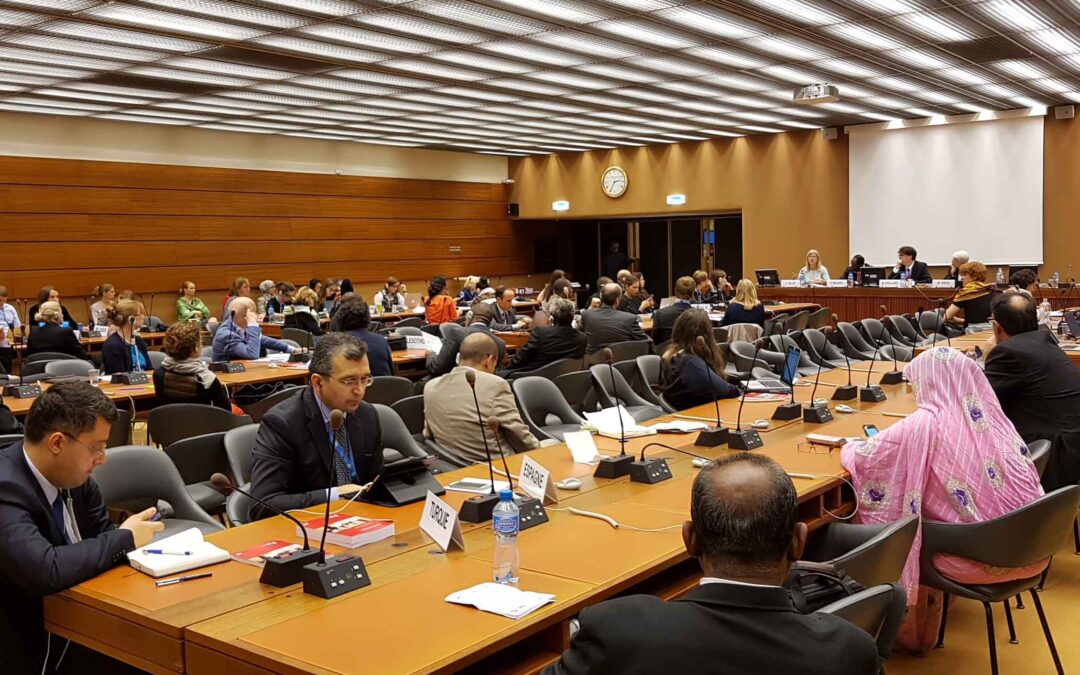
Jun 13, 2016 | Events
Who judges the judges?
Accountability for judicial corruption and judicial complicity
Side Event Tuesday 14 June 2016, 14:00 – 16:00
Room XXIII, Palais des Nations, Geneva.
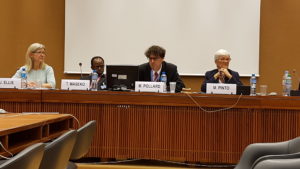
The International Commission of Jurists (ICJ) and the International Bar Association (IBA) organised a side event to the 32nd session of the Human Rights Council, on the topic of accountability for judicial corruption and judicial involvement in human rights violations.
The well-attended event considered the need for judicial accountability, and different options for effective mechanisms and procedures of accountability. Recommendations for ordinary situations were complemented with reflections on circumstances of transitions where the judiciary have been deeply implicated in the violations of the previous regime, as well as particular challenges in developing countries.
At the event the ICJ launched its new Practitioners’ Guide on Judicial Accountability, and the IBA presented the recent report of its Judicial Integrity Initiative on Judicial systems and Corruption. Print copies of both publications were distributed.
A panel discussion also featured the UN Special Rapporteur on the independence of judges and lawyers, as well as Thulani Maseko, a lawyer from Swaziland who was subjected to prolonged arbitrary detention and imprisonment by judges in Swaziland, for speaking publicly about judicial misconduct in the country.
Speakers:
- Mónica Pinto Special Rapporteur on the independence of judges and lawyers
- Thulani Maseko Lawyer, Swaziland
- Jane Ellis, Director, Legal & Policy Research Unit, International Bar Association
- Matt Pollard, Centre for the Independence of Judges & Lawyers, International Commission of Jurists
In addition to the ICJ and IBA, side event co-sponsors included:
- The Permanent Mission of Hungary to the UN
- Commonwealth Magistrates’ and Judges’ Association
- Commonwealth Lawyers Association
- Rechters voor Rechters (Judges for Judges), Netherlands
- International Legal Assistance Consortium
The ICJ Practitioners’ Guide on Judicial Accountability, and the research and consultations on which it is based, was made possible with the financial support of the Republic and Canton of Geneva and the Ministry of Foreign Affairs of Finland.
For more information, please contact Matt Pollard.
ICJ Practitioners’ Guide No. 13 on Judicial Accountability
The ICJ’s Practitioners’ Guide No. 13 on Judicial Accountability aims to help practitioners ensure accountability for serious judicial misconduct, such as corruption or complicity in human rights violations, while preserving the independence of the judiciary.
It focuses on international standards on accountability mechanisms and procedures, illustrated by practical examples. It addresses not only the accountability of individual judges, and the accountability of judiciary as an institution, but also State responsibility under international law, particularly in relation to harm caused to victims of violations by judges.
The Guide was greatly informed by discussions among eminent judges and lawyers from around the world, convened by the ICJ Centre for the Independence of Judges & Lawyers, in Tunisia in October 2015 , and in Geneva in December 2015.
Among the topics covered by the new ICJ Guide are:
- The obligation to ensure an independent, impartial and accountable judiciary.
- The forms of judicial accountability, including:
- Remedy and reparation for victims,
- The responsibility of the State,
- Removal from office, disciplinary sanctions, and other administrative measures,
- Criminal responsibility, and
- The right to the truth.
- The structure and elements of accountability bodies, such as:
- Review of decisions through appeal or judicial review,
- Judicial councils,
- The ordinary courts,
- Parliamentary procedures,
- Ad hoc tribunals,
- Anti-corruption bodies,
- Civil society monitoring and reporting,
- National human rights institutions,
- Professional associations,
- International accountability mechanisms.
- Procedural issues, including:
- Necessary powers for accountability mechanisms,
- Procedural rights of the judge,
- Procedural rights of complainants and victims,
- Publicity and transparency,
- Procedures for lifting judicial immunity,
- Temporary suspension during proceedings, and
- Selective enforcement for improper purposes.
- Mechanisms in exceptional circumstances, such as transitions from undemocratic or authoritarian regimes, including:
- Truth commissions,
- Vetting, and
- Mass removal and re-application.
- Particular challenges in relation to developing countries.








